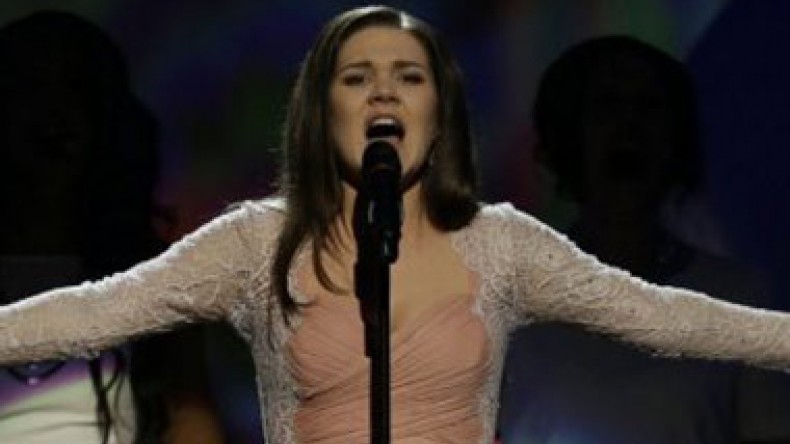
EurasiaNet: When it came to Eurovision Azerbaijan became extremely courteous with Russia
When it comes to differences with Russia over energy or arms shipments, Azerbaijan rarely flinches or gives an inch. But when discussion turns to the 2013 Eurovision Song Contest, Europe’s annual sequin-studded pop-music extravaganza, Azerbaijan seems unusually solicitous in its reaction to Russia, Shahin Abbasov writes in his article published in U.S. organization EurasiaNet.
According to the article last week, there’s been lots of wailing in Moscow about the Eurovision results, which showed Azerbaijan gave no points to the Russian contestant, Dina Garipova and no one has been able to offer a convincing explanation as to why Russia’s Eurovision anger matters so much to Baku. Azerbaijani officials have appeared eager to make amends: President Ilham Aliyev called for an investigation, and Foreign Minister Elmar Mammadyarov released data from all three of Azerbaijan’s mobile operators to support Baku’s assertion that, yes, it had voted for Garipova.
Many Azerbaijanis, terming the investigation “ridiculous” and “silly,” would agree.
“It is only a song contest. Baku should calmly ignore it, and the uproar over Eurovision in Russia would soon disappear,” commented political analyst Elhan Shahinoglu, head of the Baku-based think-tank Atlas. “But the Azerbaijani government itself politicized the issue, showing how afraid it is of Russian anger,” he added.
“It shows how far we are from the civilized world,” added Rauf Mirgadirov, a political columnist for the Russian-language daily Zerkalo (The Mirror). “Could you imagine such a conflict between Denmark and Sweden, for example?” he asked.
The author writes that the Azerbaijani government has not demonstrated similar sensitivity on matters of far greater economic and political importance, such as the construction of oil and gas pipelines that deliberately avoid Russia. Baku also has stood firm in lease negotiations for the Gabala radar station. Yet to see Mammadyarov and Russian Foreign Minister Sergei Lavrov now, some Azerbaijanis have joked on Facebook, you would think they have nothing to discuss other than the Eurovision vote.
“With a presidential election scheduled for October, and, with it, the risk of unsanctioned street protests, Baku has good reason not to want to vex the Kremlin. Members of Aliyev’s administration may worry that a Russia-based group of ethnic-Azeri billionaires could pose a political threat to President Aliyev’s reelection, and thus officials are eager to keep Russia relatively happy,” noted Shahinoglu.
The author believes that or perhaps energy plays a role – Baku and Moscow are discussing new terms for shipping Azerbaijani oil to Russia via the Baku-Novorossiysk pipeline, following Moscow’s suspension of a 1996 agreement. “But why Eurovision would be the chosen tool for smoothing those tensions away is a mystery,” Abbasov writes.
One analyst, who asked not to be named, speculated that President Aliyev himself, or his wife, First Lady Mehriban Aliyeva, who oversaw arrangements for the 2012 Eurovision in Baku, may feel personally embarrassed or upset by the Eurovision flap. This could explain Baku’s eagerness to curry favor with Moscow, given that government decision-making in Azerbaijan is generally vertical, particularly in an election year.
Amid the brouhaha with Russia, the Azerbaijani public generally has ignored another brewing scandal -- an online Lithuanian news outlet’s report that Azerbaijan allegedly attempted to buy votes for Eurovision.
Newsfeed
Videos






























